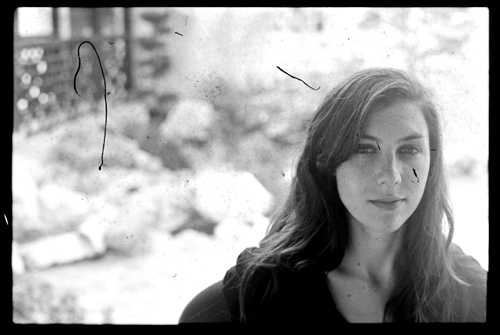One of my favourite labels at the moment is probably RVNG INTL, thanks mostly to the Blues Control & Laraaji album I fixated on at the end of last year, and to the forthcoming collaboration between Sun Araw, M Geddes Gengras and The Congos.
There’s also, though, Julia Holter, whose forthcoming album is a crystalline pleasure called “Ekstasis”, and is the sort of cleanly-etched and marginally ethereal record that seems very well-suited to bright winter days like this one (in London, at least).
If you drop in on RVNG’s site, you can hear “Marienbad”, the first track from “Ekstasis”, which gives a pretty idea of what to expect. Comparisons are to some degree invidious when dealing with such an individual artist but, nevertheless, you could feasibly pitch Holter’s music as a cross between the nuanced trajectories of Joanna Newsom, and Julianna Barwick’s sepulchral and in some cases disorienting use of ambient effects.
As you’ll hear, there’s also a point in “Marienbad” which exquisitely promises a dance breakdown that never quite arrives; a link, perhaps, with Fever Ray and a de-gothified Zola Jesus. One of my wise colleagues also spotted a certain melodic kinship with the Aphex Twin circa “Richard D James”.
Once or twice, the rest of the album verges on being rather winsome indie-synthpop, but Holter is always skilled at pulling her music into a less expected place. The final “This Is Ekstasis” begins as a dislocated piano ballad, expands into a chorale of dislocated Holters (which reminds me, thrillingly, of Linda Perhacs’ “Parallelograms”), staggers onwards on knifelike synths, and gradually finds a place for some meandering jazz.
There is a free sax solo, some panting, eerie incantations, double bass and cellos, and a sense that Holter is keen to mix an unorthodox but vivid kind of pop with something akin to the avant-garde; maybe those of you who’ve heard last year’s “Tragedy” would know more about that? One last damned comparison, anyhow: if you were as disappointed as I was with the last Björk album, check this out.
Follow me on Twitter: @JohnRMulvey


